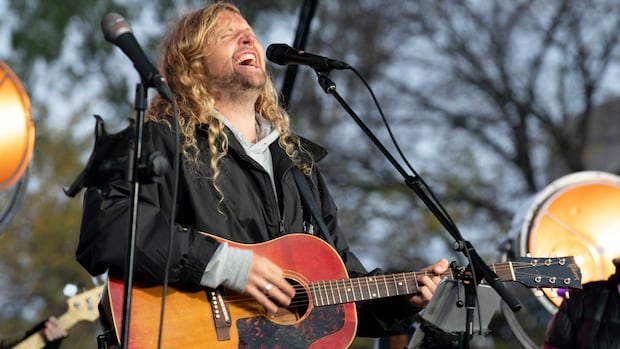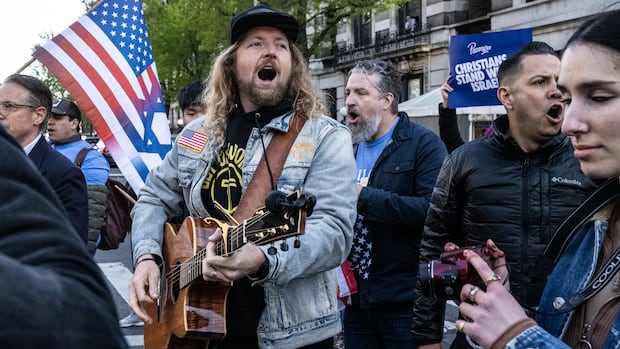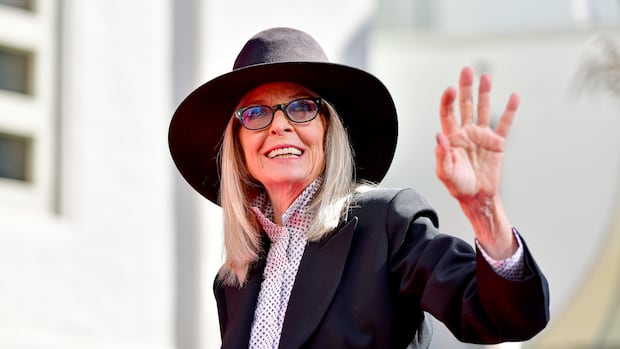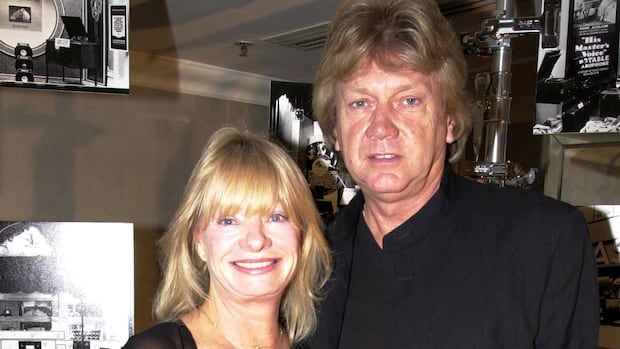Had you heard of Sean Feucht before this month? If you hadn’t, you likely have now.
The U.S.-based Christian musician wasn’t exactly a household name or selling out the biggest concert venues in this country, but his recent concert tour in Eastern and Central Canada has put him in the spotlight in the past couple of weeks, as permits for some of his shows have been revoked amid an outcry that his controversial views are being given a platform in public spaces.
The 41-year-old preacher and activist has raised the ire of people for his support of U.S. President Donald Trump and his Make America Great Again, or MAGA, movement, and over comments he’s made about abortion, critical race theory 2SLGBTQ+ rights and gender diversity.
His supporters, including Canadian politicians like Conservative MPs Michael Barrett (Leeds—Grenville—Thousand Islands—Rideau Lakes) and Andrew Lawton (Elgin—St. Thomas—London South), have decried what they see as an attack on free speech, conservative viewpoints and religion.
While some freedom of expression experts do not agree with Feucht’s views in any way, they do see the efforts to cancel his concerts — especially those scheduled to be held in public spaces — as problematic and indicative of how censorship is being used as a means of tackling social issues rather than debating them.
“Because freedom of expression is so fundamental in a democratic society, we restrict it only in the most extreme cases,” said James Turk, director of the Centre for Free Expression at Toronto Metropolitan University.
American musician Sean Feucht has had multiple event permits for his Canadian concert tour denied or revoked by cities and Parks Canada, as some oppose his affiliation with the MAGA political movement.
Safety or censorship?
Over the course of the past week, Feucht saw permits revoked for his concerts in Halifax, Charlottetown, Moncton, N.B., Quebec City, Gatineau, Que., and Vaughan, Ont.— all of which were to be held at public sites.
The City of Montreal attempted to halt his Friday night performance at a church, but it went ahead as scheduled. The church, however, is now facing a $2,500 fine for hosting the event without a permit.
Feucht is scheduled to tour several cities in Western Canada late next month, including Winnipeg, Saskatoon, Edmonton, Kelowna, B.C., and Abbotsford, B.C.
Turk said that public spaces are different than private venues, whose owners can choose who they do and don’t host without violating the Charter of Rights and Freedoms.
There are “a very limited number of reasons” why municipal, provincial or federal governments could justify cancelling an event like this, he said, and there would need to be “reasonable grounds to believe that the person is going to engage in illegal activity in that space.”
In most of the cases, officials cited safety and security concerns and not the content of Feucht’s shows or his past comments.
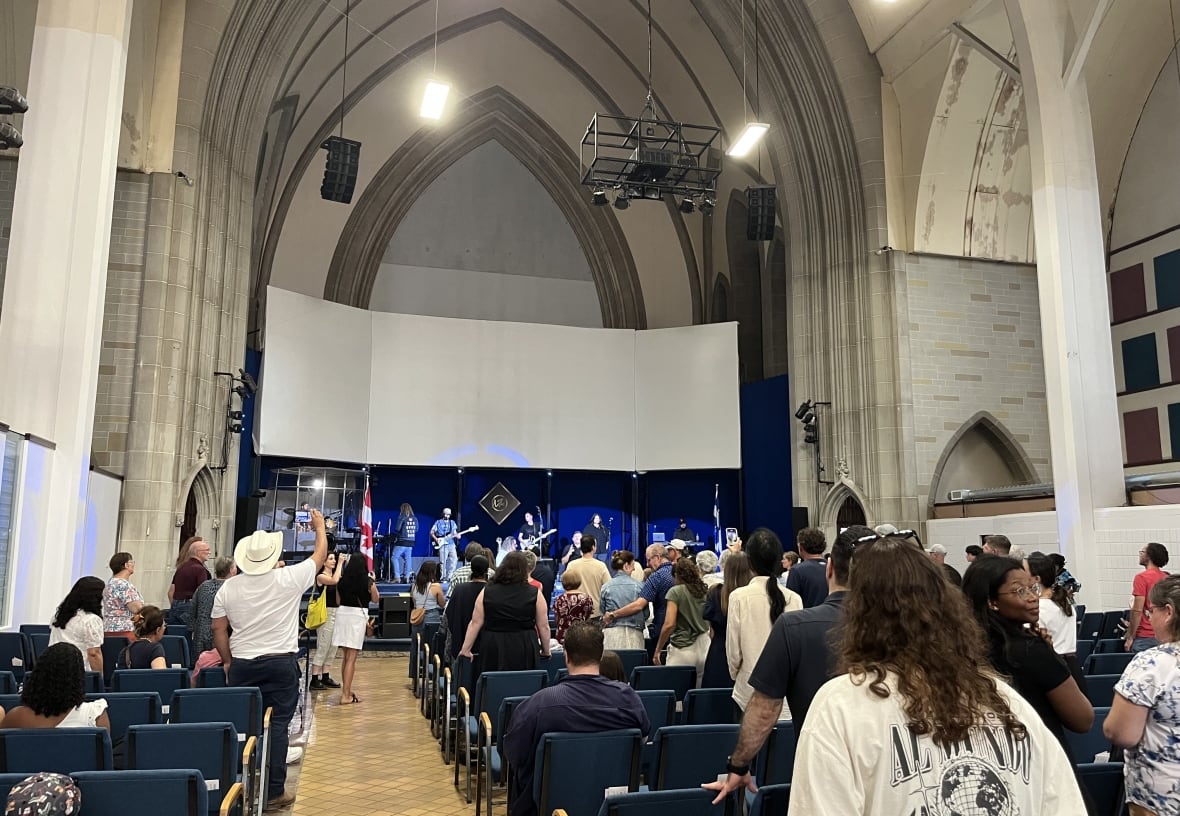
But Turk said he doesn’t believe Feucht’s performance would have created “such a threatening situation that local police forces wouldn’t be adequate to handle it.”
“I fear that, as in many cases, the use of security as an excuse is just that — an excuse to otherwise to deny what’s a fundamental right of freedom of expression in this country,” he said.
If there was a situation in which tempers could flare if critics or protesters tried to disrupt one of Feucht’s shows, government agencies responsible for pubic spaces have an obligation to provide the resources to ensure safety and order, said Stephen Newman, a professor emeritus in the politics department at York University in Toronto.
But in an email to CBC News on Monday, he wrote that acting on “unspecified concerns” and preventing Feucht’s concerts from taking place in response to public outcry is akin to what is known as a “heckler’s veto” — in which groups or individuals suppress or shut down another’s speech by means of disruption, intimidation or even violence.
BreakawayQuebec City withdraws permit to Influential christian musician and MAGA supporter set to perform at Expo Cité
Quebec City is the latest Canadian city to cancel a scheduled appearance by a controversial Christian rock musician and rising star in the MAGA movement, Sean Feucht. Matthew D. Taylor, an author and Senior Christian Scholar with the Institute for Islamic, Christian, and Jewish Studies, spoke with guest host Allison Van Rassel about Feucht’s influence and his relationship with U.S. President Donald Trump.
Capitalizing on controversy
Feucht may have fewer gigs on his tour schedule, but he just gained a wealth of free publicity, said Dax D’Orazio, a post-doctoral fellow in the University of Guelph’s political science department who researches freedom of expression in Canada.
“If you generally disagree with someone, if you think their expression is harmful, you have to think really long and hard about what the best way to counteract that in society is,” he said.
“Sometimes calling for the cancellation of events Is not always the most strategic way to go about things.”
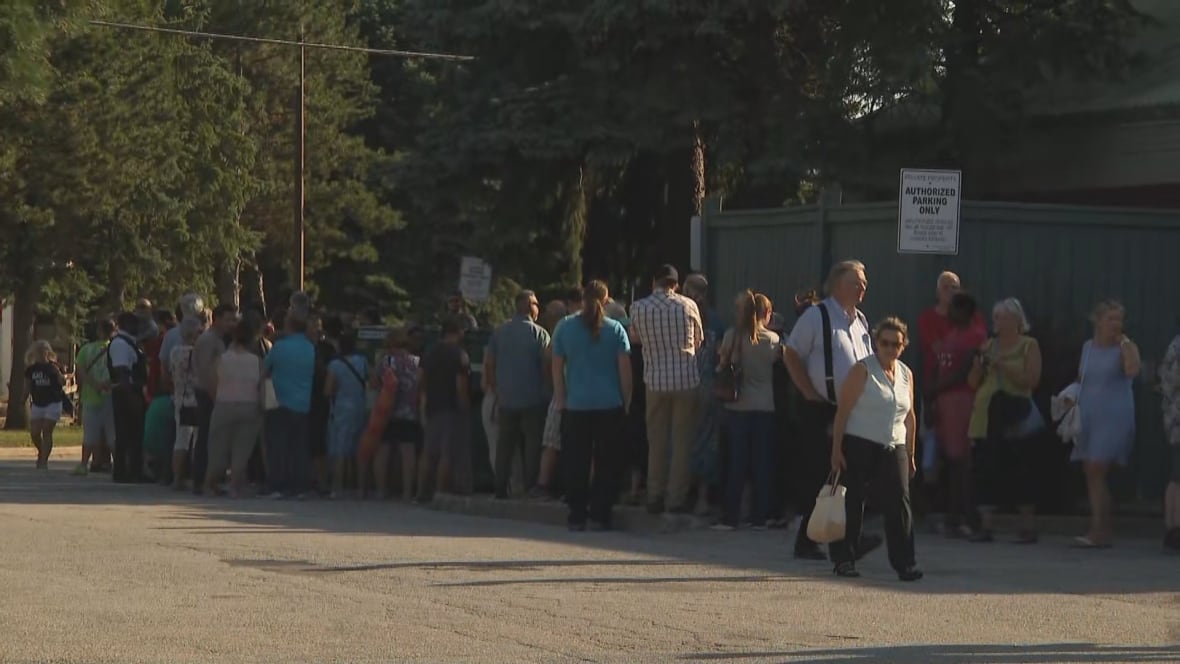
D’Orazio said performers like Feucht can earn “symbolic capital in public discourse” if they can claim they’re a victim.
Matthew Taylor, a senior Christian scholar at the Institute for Islamic, Christian and Jewish Studies in Baltimore who has written about Feucht, shared that sentiment.
“He’s been doing these provocative, in your face, intentionally trying to draw a response from local officials, even trying to get barred or banned, and then he presents that as persecution, that he is the victim of anti-Christian bias,” he told CBC News last week.
Feucht, for his part, celebrated that he and his followers were triumphant over attempts to scuttle the performances, having rebooked some to other venues or properties.
“The plan of the enemy has backfired BIG TIME up here!!” Feucht wrote in a Facebook post on Thursday.
“Just like the book of Acts, what the activists tried to stop has now gone viral — IT BACKFIRED!! They are having to report on worship and the preaching of the gospel every night! We did not seek this controversy — yet God will use it for His glory!,” he said in a separate post that same day, noting it was the third year in a row of bringing his “Let Us Worship” movement to Canada.
Sean Feuch, a U.S. singer in the MAGA movement, will not perform at a national historic site near Halifax after the permit was revoked for ‘evolving safety and security considerations,’ according to Parks Canada. The concert will continue at a new venue in a rural area about 60 kilometres north of the city.
‘Price of a democracy’
Both Turk and D’Orazio said they see a bad precedent being set by public agencies revoking permits for a divisive figure like Feucht.
There could end up being a “tit-for-tat” situation,D’Orazio said, in which people or groups holding opposing views can target one another using Feucht as an example of public agencies shutting down events just because people on one side are rallying against the other.
It doesn’t matter if people view Feucht as spreading hate, Turk said, because it’s unlikely anything he says would rise to the level of being considered hate speech in the eyes of Canada’s justice system.
Turk said in the case of someone crossing that line, they should indeed be prevented from having a platform.
But beyond that, he said, freedom of expression must be protected for everyone equally — regardless of which views we hold.
“The price of a democracy is we’re always exposed to divergent views, some of which we love, some of which we hate.”


